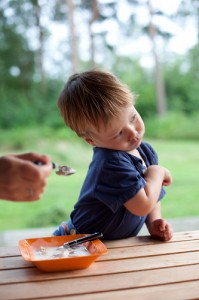“No†is an important word
Saying, “No†is one of the first things we learn how to say. Two-year-olds say, “No†as a way to show their sense of self – this is very powerful, as every parent of a two-year-old knows!
The word, “No†helps us put healthy limitations and boundaries on our relationships.
With really close friends and family members, we can often just say, “No†directly. However, most of the time, we need to be careful about telling others, “No†– we don’t want to hurt their feelings or seem offensive.
Saying “No†directly or politely
Direct:
- No.
- No thanks.
- No, I can’t.
- No, I don’t like it.
- No, I don’t want to.
Direct expressions can sound rude if you use them with the wrong people. Use direct expressions only with very close friends and family members.
Polite:
- Sorry, but I don’t particularly like mushrooms.
- I’m afraid I’m unable to meet for lunch. I have to work uptown today.
- I’d really rather not go to the mall.
- Sorry, I’m not really fond of swimming.
- That’s very kind of you, but I really have to get prepared for a test tomorrow.
- Thank you, but it’s not my idea of a good time.
Polite expressions can be used with anyone, which makes them safer to say. But, if you use these too often with your closest friends, you may seem a little distant or cold.
Practice polite refusals
Practice these expressions for 5 minutes a day this week. Say them in your own sentences. When you’re ready, try to use them in your conversations with friends and coworkers whenever you need to say, “No.† If you’re not sure if you should be direct, remember that it’s better to be polite.
To work with a Certified Teacher to improve your accent Contact Laura Meet in-person in Toronto or online from anywhere in the world on Skype

